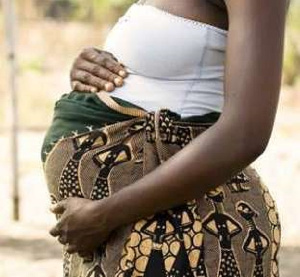Statistics from the 2022 Ghana Demographic and Health Survey (GDHS) indicate that one in every 10 (10.9%) adolescent girls aged 15 to 19 years has had a live birth.
The survey carried out by the Ghana Statistical Service was to highlight challenges such as early marriage and childbearing, and deprivation of education that prevent young girls from reaching their full potential.
This was to mark the International Day of the Girl Child celebrated annually on October 11; this year’s theme is "Invest In Girls' Rights: Our Leadership, Our Well-being".
Findings from the survey indicate that;
The percentage of adolescents that have had a live birth increases with age, with 19-year-olds recording the highest rate of almost a quarter (23.8%).
In 10 out of the 16 regions, more than 10 percent of adolescents 15 to 19 years have had a live birth with the Bono East Region recording the highest, thus, one in every five (19.1%) girls in this age range have had a live birth.
The Savannah (17.5%) and the North East (17.5%) regions are tied for the second highest followed by the Ashanti Region (16.8%).
The Greater Accra Region (5.4%) has the lowest percentage and is the only region to record a figure less than half the national average.
The percentage of girls 15 to 19 years old that have had a live birth is almost twice in rural areas (14.4%) compared to urban (8.0%).
More than a quarter (26.5%) of adolescent girls with no education had had a live birth compared to 20.3 percent of those with primary education.
The percentage of girls with secondary education (8.6%) who had a live birth was less than half of those with primary or no education.
Adolescent girls in households in the lowest wealth quintile (17.5%) had the highest percentage with a live birth, more than four times the figure recorded for girls in the highest wealth quintile (3.7%).
Finally, about one in every 10 (9.1%) adolescents aged 15 to 19 years had been in a marital union during the 2021 Population and Housing Census: 5.5 percent were currently married, 3.2 percent were currently in informal unions or living with a partner, and 0.4 percent had formerly been married.
Latest Stories
-
PenTrust CEO named ‘Best Pensions CEO’, company wins ‘Scheme Administrator Award’ at Ghana Accountancy & Finance Awards 2024
7 mins -
Alan Kyerematen’s ‘Brighter Future for Health Professionals’ in Ghana Revealed in Bono
18 mins -
NPP will ensure a safer cleaner and greener environment – Dr Kokofu
26 mins -
2024 Election: Police to deal with individuals who will cause trouble – IGP
26 mins -
Seychelles President’s visit rekindles historical and diplomatic ties with Ghana
32 mins -
Election 2024: EC destroys defective ballot papers for Ahafo and Volta regions
42 mins -
2024 Election: I am sad EC disqualified me, but I endorse CPP’s candidate – PNP’s Nabla
1 hour -
I want to build a modern, inclusive country anchored by systems and data – Bawumia to CSOs
1 hour -
Miss Health Ghana 2024: Kujori Esther Cachana crowned new Health Ambassador
1 hour -
Livestream: The manifesto debate on WASH and climate change
1 hour -
Alan Kyerematen saddened by NDC and NPP’s neglect of Krofrom Market in the Ashanti Region
1 hour -
CSIR Executive Director urges farmers to adopt technology for improved farming
2 hours -
Football Impact Africa’s Ghetto Love Initiative inspires change in Teshie
2 hours -
Peter Toobu calls for tighter border security over uncovered weapons at Tema Port
2 hours -
Gov’t has failed its commitment to IPPs – Ablakwa
2 hours

